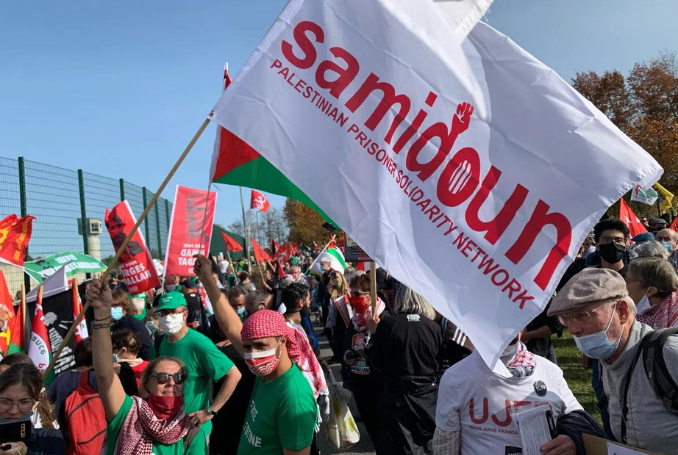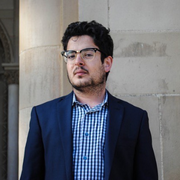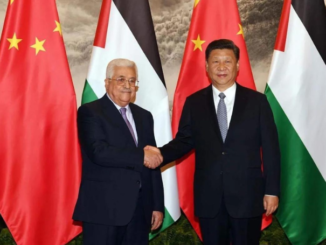
By Omar Zahzah
In addition to YouTube, Kates describes the severe repression Samidoun faces on the Meta platform Instagram, including the arbitrary nature of “community standards violations.”
The explosion of tech suppression of support for the Palestinian cause amidst US facilitation of the Zionist state’s vicious genocide has exposed the broader conditions making blanket censorship possible.
Digital/settler-colonialism is the strategic coordination between the Zionist state and US Big Tech. Incentivized by US imperialism, collaborative exchange with a settler-colonial and genocidal regime is richly profitable and productive for Big Tech.
And Big Tech, with all of its blithe corporate-speak about so-called “community standards” or “terms of service” (interchangeable euphemisms for terms of servitude to a colonial-capitalist political order) diligently sets its repressive apparatuses to retconning resistance to colonialism and racism as ban-worthy indices of hatred, violence, and danger.
‘No Surprise’
But what makes the normalization of Big Tech repression of Palestine vis-à-vis digital/settler-colonialism so pernicious is the hegemony of a handful of companies. This is what Google’s deletion of Samidoun: Palestinian Prisoner Solidarity Network’s YouTube channel makes all too clear.
On Monday, June 24, the organization was notified that its channel and the channel of Charlotte Kates, Samidoun’s international coordinator, had been struck and deleted.
As Samidoun writes in its statement, the striking and deleting of both accounts
came despite the fact that Charlotte’s channel had never had a strike, and Samidoun’s only one warning after mass reporting (and had videos pulled down for similar baseless reasons on a one-by-one basis). This is clearly intended to silence voices speaking about Palestine… Once again we note the bias and clear alignment of Big Tech firms with Zionism and imperialism, which comes as no surprise.
Samidoun’s programming is devoted to supporting Palestinian prisoners, whom Palestinian journalist, author and Palestine Chronicle editor Ramzy Baroud describes as “Palestine’s organic intellectuals” à la Antonio Gramsci.
By exposing the conditions of Palestinian prisoners’ oppression to the world and situating their resistance as the nucleus of Palestinian liberation, Samidoun confirms this classification.
Samidoun’s statement further notes that Israel itself had written to its webhost in an attempt to get the Samidoun website taken down, calling its presence a “cybercrime,” and the organization speculates that the same process was attempted (albeit more successfully) with YouTube. In keeping with its analysis, Samidoun understands Palestinian prisoners to be the ultimate victims of this repression.
While Samidoun notes in its statement that it has uploaded much of its material to Odysee, and is in the process of finding additional content hosts, simply focusing on alternative platforms does not address the root of the issue, as Samidoun international coordinator Charlotte Kates explains in a recent interview:
“Just saying ‘don’t use these platforms’ isn’t much of a solution. These are platforms people rely on to get their news and information,” Kates says.
Big Tech hegemony ensures prominent platforms become dominant resources for expression, for the exchange of information—a particularly ominous state of affairs in light of recent revelations that Microsoft is blocking Palestinians living abroad from accessing personal email accounts and using Skype to contact relatives in Gaza.
Matrix of Repression
Kates details how Big Tech censorship of Samidoun is part of a broader matrix of political repression that includes weaponized “terrorism” charges and national bans. Once successful, these sanctions inform increasing instances of suppression on digital platforms.
In February 2021, Israel designated Samidoun a “terrorist” organization. This was six months before the more widely publicized (and equally baseless) Israeli designation of the six Palestinian civil/human rights organizations Addameer, Al Haq, the Bisan Center for Research and Development, the Union of Agricultural Work Committees, the Union of Palestinian Women Committees, and Defense for Children International—Palestine as “terrorist” organizations. Samidoun was banned in Germany on October 12th, 2023.
“Germany banned Samidoun, and that also meant they banned our internet account,” Kates says. “They want to ban people with a German IP from accessing our content. The German government sent out these orders to ISPs to block people in Germany from seeing Samidoun [social media] accounts.”
But the issue goes beyond Germany. Zionist defamation and fearmongering can legitimize broader repression on tech platforms, which make their decisions without transparency. This can have severe ramifications for an international organization trying to coordinate its efforts and reach current and potential members.
In addition to YouTube, Kates describes the severe repression Samidoun faces on the Meta platform Instagram, including the arbitrary nature of “community standards violations.” Kates states that the organization would often be hit with “community standards violations” for posts about Palestinian prisoners such as Khalida Jarrar that reflected on the conditions of their imprisonment.
Kates adds the censorship is such that Samidoun Brussels, a chapter which has been particularly active in the student encampments, can’t even keep an Instagram account, and if they attempt to create a new account, it gets banned “before they can even post anything.” Kates notes that Within Our Lifetime (WOL,) the grassroots Palestinian activist organization in New York City, was subjected to exactly the same repression.
‘It’s Coming for You, Too’
Kates also has practical recommendations for organizers, particularly not taking the continued presence of certain platforms for granted. While Instagram was a boon for social reach, and YouTube seemed a reliable solution to storage needs, censorship reminded Samidoun of the importance of remaining technologically versatile: “Don’t let Meta, Google or Alphabet through YouTube be the owner of all of your data.”
Anti-Palestinian repression across platforms is all-inclusive. While it’s easy to scapegoat organizations like Samidoun, which supports Palestinians’ right to armed resistance, as facing they repression they do simply for being “too radical,” Kates argues that such a view obscures the true extent of repression facing all who advocate an anti-colonial and anti-imperialist politic:
“If you see it happening to somebody else, never assume it’s because they did something irresponsible, or they were being ultraleft, because it’s coming for you, too. That’s the way that this goes, it works down the line… There is no form of optics that will protect anyone from this, because this is about silencing support for Palestine. It’s never been about community standards; it’s always been about the political goal.”

– Omar Zahzah is a writer, poet, organizer, and Assistant Professor of Arab and Muslim Ethnicities and Diasporas (AMED) Studies at San Francisco State University. Omar’s book, Terms of Servitude: Zionism, Silicon Valley, and Digital/Settler-Colonialism in the Palestinian Liberation Struggle is forthcoming from The Censored Press in Fall 2025. He contributed this article to The Palestine Chronicle.








Defund Israelica.